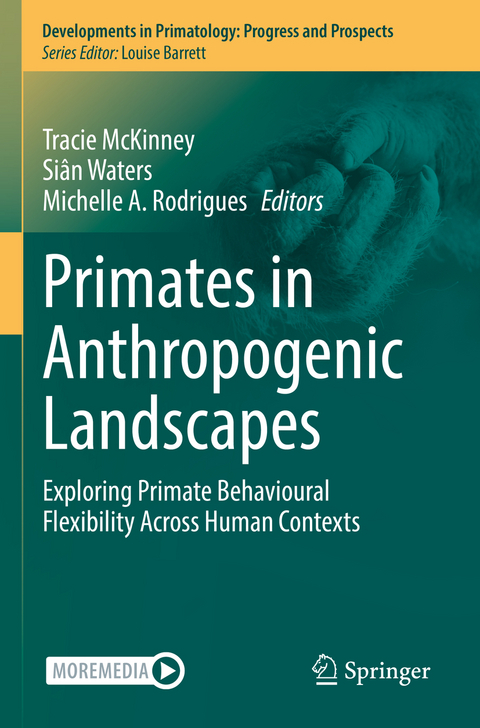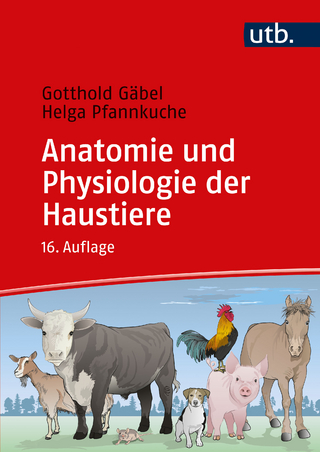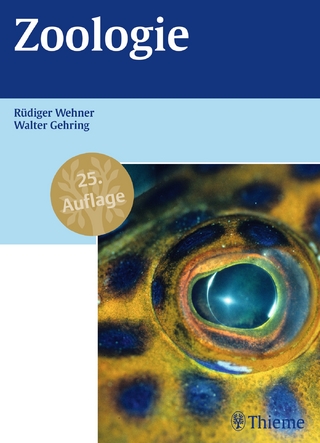
Primates in Anthropogenic Landscapes
Springer International Publishing (Verlag)
978-3-031-11738-1 (ISBN)
Dr Tracie McKinney is a biological anthropologist with a research interest on human-primate interactions. She has primarily worked with Central American monkeys, but is broadly interested in ecotourism, crop foraging, and other situations where humans and non-human primates interact. She is a graduate of The Ohio State University, and currently work as a Senior Lecturer at the University of South Wales. Tracie's most recent work has focused on ethnoprimatology and its role in primate research, best practice guidelines for primate tourism, and building aerial bridges to help monkeys safely cross roads. Tracie is a member of the IUCN Primate Specialist Group's Section for Human-Primate Interactions (SHPI).
Dr Michelle A. Rodrigues is a biological anthropologist with research interests in the impact of sociality on stress biology, including the impact of human-primate interactions on primates across wild and captive contexts. She has worked primarily with Central American monkeys, as well as captive platyrrhines and apes. She received her PhD from The Ohio State University and is currently an Assistant Professor in the Department of Social and Cultural Sciences at Marquette University. Her recent work has focused on applying decolonial approaches to improving the practice of primatology. Michelle is a member of the IUCN Primate Specialist Group's Section for Human-Primate Interactions (SHPI).
Dr Siân Waters is the founder and director of a community conservation project in Morocco focusing on the Endangered Barbary macaque, where she uses ethnographic data to identify social and cultural obstacles to the species' conservation. She is an honorary research fellow in the Department of Anthropology at Durham University, UK, and the Vice-chair of the IUCN Primate Specialist Group's Section for Human-Primate Interactions (SHPI). The SHPI focuses on understanding people's interactions with primates in agroecosystems, urban environments, human culture, and trade. Siân is also interested in the human dimensions of wildlife translocations and is a member of the IUCN SSC Conservation Translocations Specialist Group.
Introduction.- Part 1-Human Influences on Primate Habitats.- Forest Fragmentation.- Primates in Regenerating Forest.- Responses of primates to roads: Dispersal barriers, mortality, and secondary effects.- Hunting by humans.- Primate-dog interactions.- Primate Tourism.- Infectious disease.- Climate change impacts on non-human primates - what have we modelled and what do we do now?.- PART 2: PRIMATES IN HUMAN-DOMINATED LANSCAPES.- Community-based conservation strategies to promote primate conservation in agricultural landscapes.- Translocated primate populations.- Translocated primate populations.- Exploring the human-primate interface.- Planning primate conservation in shared landscapes.- Non-pathogenic influences on primate health and behaviour.- PART 3: PRIMATES IN CAPTIVITY.- Anthropogenic and observer effects on primate behaviour: Perspectives on the continuum of wild-captive behaviour.- The primate pet trade.- Rescue, rehabilitation, and reintroduction.
| Erscheinungsdatum | 04.01.2024 |
|---|---|
| Reihe/Serie | Developments in Primatology: Progress and Prospects |
| Zusatzinfo | XIII, 346 p. 36 illus., 29 illus. in color. |
| Verlagsort | Cham |
| Sprache | englisch |
| Maße | 155 x 235 mm |
| Gewicht | 551 g |
| Themenwelt | Naturwissenschaften ► Biologie ► Zoologie |
| Sozialwissenschaften ► Ethnologie | |
| Weitere Fachgebiete ► Land- / Forstwirtschaft / Fischerei | |
| Schlagworte | anthropology and non human primates • Chimpanzee • non human to human primate contact • primate conservation • primate pet trade • primate predators • primate wild-captive behavior • trans-located primates |
| ISBN-10 | 3-031-11738-7 / 3031117387 |
| ISBN-13 | 978-3-031-11738-1 / 9783031117381 |
| Zustand | Neuware |
| Haben Sie eine Frage zum Produkt? |
aus dem Bereich


